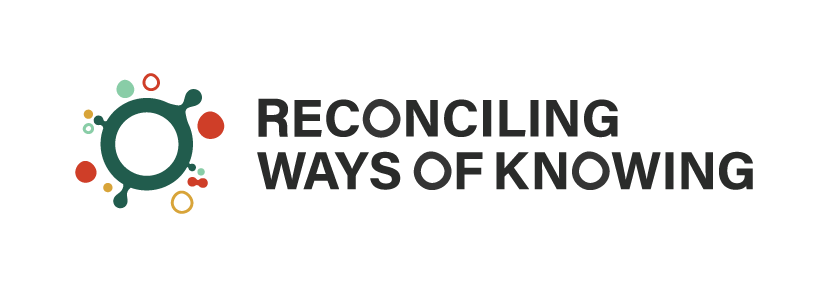Etuaptmumk / Two-Eyed Seeing and Beyond
This dialogue originally aired on October 28, 2020
Mi’kmaq Elder Albert Marshall, Drs. Jesse Popp, Andrea Reid and Deborah McGregor discussed the idea of Etuaptmumk or Two-Eyed Seeing and other related frameworks for understanding across ways of knowing with moderator Jacquie Miller, MA.
Etuaptmumk Two-Eyed Seeing is a guiding principle developed by Mi’kmaq Elder Albert Marshall that recognizes that better outcomes are more likely if we bring two or more perspectives into collaboration. Accordingly, Etuaptmumk can also be understood as a gift of multiple perspectives, an insight and framework that could help us do better in many areas of our shared lives, including our relationship with the earth.
The guests discussed how Two-Eyed Seeing requires learning together and from each other, and discussed other transsystemic ways of knowing and understanding, including how the relationship committed to in the Two-Row Wampum can help guide our understanding and collaboration across ways of knowing.
Speaker biographies
Mi’kmaw Elder Albert Marshall
Albert Marshall is an Elder of the Mi’kmaw Nation of Unama’ki (Cape Breton Island), Nova Scotia. He is the ‘designated voice’ on environmental issues for the Mi’kmaw Elders, a fluent speaker of the Mi’kmaw language, and a passionate advocate of Mi’kmaq culture, healing, and reconciliation. In 2009 Albert and his wife Murdena were awarded honorary doctorates from Cape Breton University for their efforts promoting and preserving Mi’kmaw culture and language. Albert is a proponent of cross-cultural understanding and Etuaptmumk: Two-Eyed Seeing – the idea that combining multiple cultural perspectives will result in clearer focus and better comprehension. He believes that Two-Eyed Seeing is the requisite guiding principle in collaborative/transdisciplinary/transcultural work and integrative science. As collaborative developers and stewards of the Integrative Science program at Cape Breton University, Elders Albert and Murdena spent the better part of two decades working with students, faculty, and researchers encouraging Etuaptmumk awareness.
Dr. Jesse Popp
Dr. Jesse Popp is a Chair in Indigenous Environmental Science at the University of Guelph. She is an emerging scholar and member of Wiikwemkoong Unceded Territory and strives to promote inclusive science that embraces multiple ways of knowing while on her journey of learning and sharing. Her research and teaching weaves Indigenous and Western ways of knowing to contribute to the advancement of environmental and ecological science. Dr. Popp recognizes that the number of declining species across the globe are increasing, and in turn, jeopardizing ecological and cultural integrity. Dr. Popp’s interdisciplinary research uses a two-eyed seeing approach to investigate the causes and consequences of wildlife population fluctuations in ecosystems and to Indigenous people's ways of life. Her work contributes to conservation, sustainability, and the progression of the natural sciences in the spirit of reconciliation.
Dr. Andrea Reid
Dr. Andrea Reid is a citizen of the Nisga’a Nation and an incoming Assistant Professor with the University of British Columbia’s Institute for the Oceans and Fisheries (starting January 2021). There, she will lead the Indigenous Fisheries Research Unit, working to build a national and international hub for the study and protection of culturally significant fish and fisheries. Her research program adopts highly interdisciplinary and applied approaches to improving our understanding of the complex interrelationships between fish, people and place. Her PhD in Biology centered on multiple stressor effects on Pacific salmon, using tools and insights from Western and Indigenous sciences in tandem. Dr. Reid is a cofounder of Riparia, a Canadian charity that connects diverse young women with science on the water to grow the next generation of water protectors. She is also a National Geographic Explorer and a Fellow of The Explorers Club.
Dr. Deborah McGregor
Dr. Deborah McGregor is Anishinabe, from Whitefish River First Nation, and Associate Professor and Canada Research Chair in Indigenous Environmental Justice at York University’s Osgoode Hall Law School and Faculty of Environmental Studies. Her research has focused on Indigenous knowledge systems and their various applications in diverse contexts including environmental and water governance, environmental justice, health and environment, climate change and Indigenous legal traditions. Professor McGregor remains actively involved in a variety of Indigenous communities, serving as an advisor and continuing to engage in community-based research and initiatives. She has been at the forefront of Indigenous environmental justice and Indigenous research theory and practice. Her work has been shared through the IEJ project website https://iejproject.info.yorku.ca/ and UKRI International Collaboration on Indigenous research https://www.indigenous.ncrm.ac.uk/.
Jacquie Miller, MA
Jacquie Miller holds a Master of Arts Degree in Political Science and Cultural, Social and Political Thought from the University of Victoria (UVic) and is a member of the first cohort in UVic Faculty of Law’s Juris Doctor/Juris Indigenarum Doctor program in Canadian common law and Indigenous legal orders. Jacquie has extensive experience working with and in support of Indigenous peoples in BC, in the north and across the country; a strong history of environmental activism and organizing; and years of work in socio-economic impact assessment and monitoring. She is a settler Canadian of European ancestry living, working and studying in the territories of the Lekwungen Peoples, the Songhees, Esquimalt and W̱SÁNEĆ, also known as Victoria and Saanich, BC. Jacquie is a lead organizer for the Reconciling Ways of Knowing: Indigenous Knowledge and Science Forum, helping effect the vision and objectives of its advisory planning committee.
October's dialogue was generously sponsored by the Canadian Mountain Network who supports the resilience and health of Canada’s mountain peoples and places through research partnerships based on Indigenous and Western ways of knowing that inform decision-making and action.

